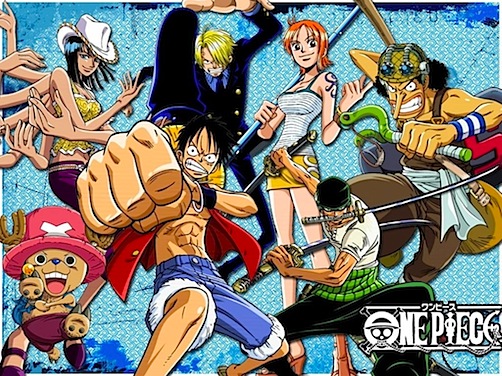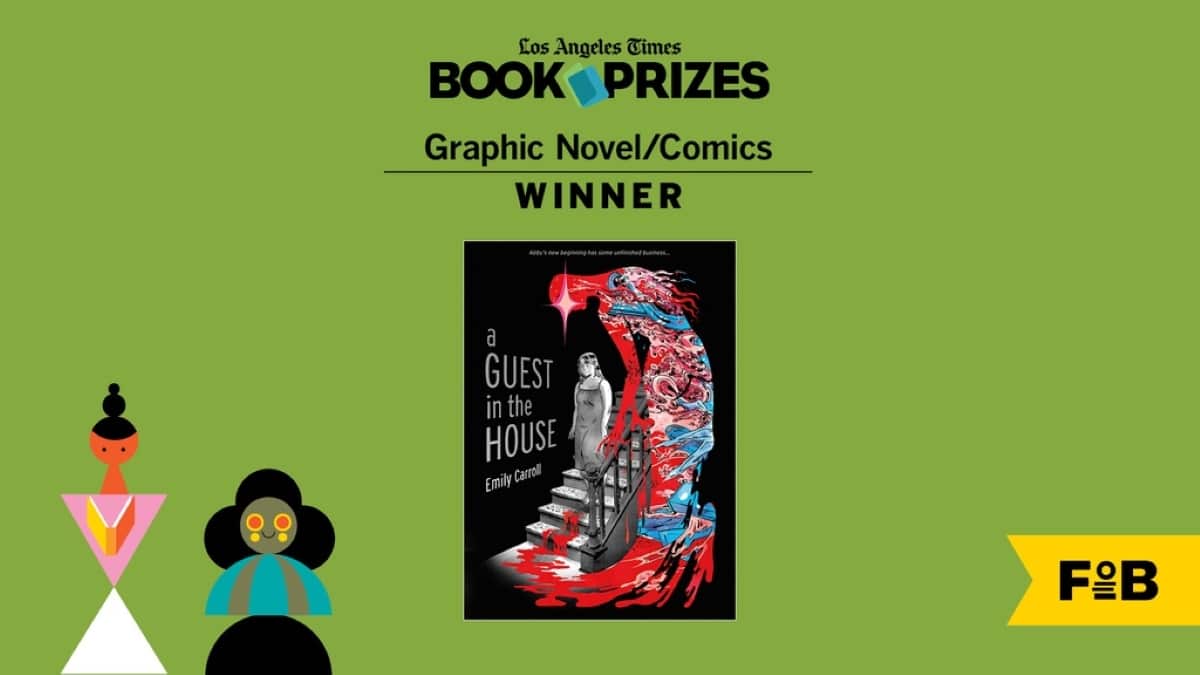Ever since the cutbacks at Viz on Monday, the online chatter has been surprisingly quiet. People close to the situation have mainly been in shock, and while the idea that Viz is “too big to fail” has been foremost among American manga commenters, we’re sure we’re not the only ones whose thoughts — after sending best wishes and job leads to those laid off — was “NO YOU CANNOT TAKE MY 20th CENTURY BOYS!” Viz released a slightly expanded statement yesterday that suggested they will not be cutting titles:
VIZ Media is in the process of refining its focus and is restructuring to adjust to changing industry and financial market realities.
As part of the restructuring the company had to refine its workforce by eliminating certain positions and making cuts in other areas.
We are of course saddened by these departures, and sincerely appreciate the hard work, passion and dedication of those that have moved on, but we feel confident that with these changes VIZ Media will be more streamlined and able to withstand the climate of the economy at this time.
This restructuring was not insignificant; however, this was primarily an internal reprioritization to build toward our future. We wish to apologize to our wonderful fans if this news has caused you concern. Be assured VIZ Media remains committed in its obligations to you. We have no plans at this time for drastic measures such as product cancellations or business line closures. Your favorite series are not going away.
While that is greeted with some relief, there’s still much grief about the people who were let go. PW’s Rose Fox updates the situation a bit:
Jane Lui at Viz confirms that Haikasoru is sticking around and says, “We have no plans at this time for drastic measures such as product cancellations or business line closures.” Another source inside the company tells me the New York office is still open: “Apparently someone decided ‘not picking up the phone’ means ‘closed forever.’” Whew!
Fox mentions Haikasoru editor Nick Mamatas as still being employed. Other editorial cuts aren’t known. However, the Marketing department has been confirmed to have been drastically cut. VP of sales and marketing Gonzalo Ferreyra is gone, as is Sr Director of PR, Evelyn Dubocq and her assistant Kara Brodksy. Jane Lui is still with the company however, and dealing with press inquiries.
While we’re grieved by ALL the cuts, we have to give a shout out to Ev Dubocq who is one of the most awesome people we’ve ever had the pleasure to work with. If we know Ev at all, she’s certain to not only land on her feet, but hit the deck running and wearing ruby slippers.
Obviously, it’s been a bad couple of years for manga – sales were down over a third since 2007, according to Milton Griepp’s white paper. Since the heyday of manga, there have been lots of graves along the roadside — ADV, CPM, Gutsoon, ComicsOne/DrMaster, Yaoi House, and now Go! Comi. (Also, has anyone seen Go Manga/Seven Seas lately?) Over the years, Tokyopop has had MAJOR cutbacks, Yen Press just canceled their print anthology and Del Rey has cut back on their manga releases. Aurora is in flux. DC is still running a manga line although they seem to be too embarrassed to ever mention it in public.
Kai-Ming Cha mentions the problems in Japan as part of the problem that flowed forward to Viz:
Last week, Anime News Network reported that 30% of manga from Japanese publisher Kodansha was rejected from Apple’s iTunes store. (Largely due to depictions of “excessive cruelty” and a bath scene where a character is topless. I guess most Americans bathe in their underwear.) While this news is sad, it does point to the fact that Japanese publishers are on their way to digital distribution, something that (given the number of pirated manga scans/fansubs online) publishers in Japan were wary of and resistant to. Which is not to say that Japanese publishers are open arms about digitizing their content.
Shueisha, Kodansha, and Shogakukan, as well as 31 other publishers in Japan, have organized to form the Electronic Book Publishers Association of Japan, largely, as it’s reported in the story, to regulate and slow the expansion of the e-books market in Japan. At the same time, 2010 has been dubbed the inaugural year of the e-book, especially with Amazon’s Kindle now available in Japan. As one of the above article points out, Japan has no lack of content with approx. 80k new titles published per year. (links via Anime News Network)
Wow, where have we heard that story before? “Regulate and slow.” Battling the digital menace. Coming from a society that has consistently pioneered the gadget-filled lifestyle, this attitude seems suicidal. Any publisher who hasn’t figured out that digital is now the major medium for entertainment distribution — anyone still fighting that notion — will be sitting there wondering where it all went in a few years. We hope you like spending time with the grandkids, y’all.
Or as Douglas Wolk wrote regarding the shotdown of htmlcomics.com the other day:
You can buy a new issue of Brightest Day or Siege in the same format the comics industry has been selling for 70 years, but you can’t buy them for any price in any digital format, even though that’s the way a lot of fans prefer to read them. It’s as if Marvel and DC had carefully studied every mistake the music business has made in the past 15 years, and resolved to make them all over again, but worse.

With manga seemingly just another category now, and not an invincible superhero of sales, the Great Recession seems to have caught up with the comics industry. Our inbox and chatline is full of vague rumblings of belt tightening at other companies and it seems that the American graphic novel business has finally found a seat at the publishing table only to see the table upended, and smashed to kindling by digital axes.
The picture is sad but hot hopeless. Kai-Ming Cha notes that the three publishing giants who co-own Viz are unlikely to give up on America as a market for their products whatever form they take — so although Viz has had the fat trimmed right to the bone, they still have products to sell and PR is going out. We’re all moving on. New business plans will emerge. But unless current publishers actually adapt their own business plans, the future is going to belong to someone else.





Manga isn’t a fad in the U.S., but like many sectors of the economy during the past decade, it suffered from a credit-fueled expansion. What we’re seeing now is a drop to something akin to a more natural level and (hopefully) more natural growth rate.
Seven Seas seems ok. Their partnership with Tor seems to be helping them a bit. I know they’ve got the second Wicked City novel slated for release at some point this year, and a little while ago they announced two omnibus style collections for Gunslinger Girl as well.
If I remember correctly from the ICV2 white paper, Manga sales numbers (2009) are currently equal to those of 2004.
According to Books In Print:
Seven Seas Entertainment, LLC
Vampire Cheerleaders: Fang Service
Publication Date: January 2011
DMP, Bandai, Antarctic are still active.
Aurora has a title scheduled for September 2010.
Udon has a title scheduled for October 2010.
Interesting…
Hagakure
The Code of the Samurai (The Manga Edition)
ISBN13: 978-4-7700-3120-4 (Kodansha/Oxford)
The 14th Dalai Lama: A Manga Biography
Penguin Group (USA) Incorporated
I think we’ll see some stabilization with the import market, as well as more original works published domestically.
Manga may not a fad per se, but its popularity is definitely contracting. Its highwater mark is well behind.
I have a slightly different take on the E-Book Association of Japan and what they’re trying to accomplish. Those guys are getting together because they understand Apple is trying to wrest control away from them, and impose rules that benefit only Apple. Think about the various iTunes censorship controversies and imagine if publishers here could get together and collectively tell Apple to cut that crap out.
Apple is a hardware company. Their concern for the survival of any medium goes only so far as it aligns with their immediate objectives. There ought to be a counterweight.
Torsten, Antarctic doesn’t publish translated manga anymore, and most of their recent new titles aren’t even “manga-style” anymore. They still publish a few of their long-running manga-style original works like Ninja High School and Gold Digger, but for the most part their newer titles are parodies like “Sarah Palin: Rogue Warrior” and “Twilit”.
I’m genuinely curious about the slow digitization of comics possibly being a cost issue.
Digitizing comics that were printed and paid for ten or more years ago is cheap. However, the costs to produce and then have available on the week of release Brightest Day #1, or brand new manga properties would be much higher, and it seems to me that people have no interest in paying the full price for those items in digital format. Am I wrong? In other words, the customer won’t pay more than, say, 99 cents for a digital comic, but the publishers cannot survive without that $2.99 on the first edition.
If I am right, why would publishers be in a hurry to switch to digital formats, if the business model is unsustainable?
Tim, there are a couple of reasons to make the switchover – 1) virtually every major comics release is available for illegal download within a couple of days (sometimes even hours) of it hitting the racks. If a publisher can get on top of that and put out day-and-date (DRM-protected) digital versions of titles they’re still selling in print, then, for example, the same kind of people who now buy their albums via iTunes are more likely to purchase the titles from a collective comics store, often because it’s more convenient to click ‘Buy’ at a one-stop shop, not just because it’s more legal.
2) If your print edition sells 4,000 copies at $3.99, and your digital edition sells a great deal more than that at 99c, you still win. Plus, if you’re publishing to both markets (not to mention the hardcover, the TP, the Absolute special birthday edition down the line), you’re amortizing your costs of creation across numerous outlets.
The benefits don’t come from switching from one format to another, but from embracing *additional* formats in order to make your investment at the art/writing stage go further. It doesn’t cost anything to print a digital edition, especially with new tools that allow you to export a copyright-protected file from within InDesign or similar.
To add to what Andrew says, print comics are simply not available to huge swaths of the population, because you can only get them in comics stores and comics stores are not evenly distributed. And even when they are, they aren’t all that convenient—I live within a few miles of several excellent comics stores, but each requires a special trip, and my life is busy enough as it is. Digital comics would open up the market by removing that geographical limitation.
“[the table has been] smashed to kindling by digital axes.”
Hee hee. “Kindling.” I see what you did there, Heidi.
Simon,
That’s what I had originally thought the EBAJ was for – organizing in numbers in order to negotiate with large digital distributors like Apple.
But I hadn’t thought of the “digital slow-down” piece of the puzzle until I read that article.
I’m not even going to try and predict how the EBAJ will act, but in facing Apple and iTunes, it’s looking like Sisyphus.
Why is it so hard for companies to understand that some people would rather not have ten longboxes when they can have a netbook? A lot of people like digital and will pay for it when they can. Keep up!
Wow, *really* strong comments today! I was going to add to the discussion, but I’m intimidated by everyone’s brainy thoughts! ^_^
@Andrew James – That is the absolute best reasoning for digital comics I’ve ever seen. You deserve a Noble Prize for explanations or something.
The only thing I can add is there’s no reason to panic with Viz. Japanese companies are run *so* differently than American companies that it’s almost apples and oranges. The smartest businessman man I know once told me, “Keep in mind you’re dealing with a culture who thinks nothing of taking 1000 years to grow a tree.” Japanese companies are patient, efficient, and speaking plainly,m cutthroat. I’m not surprised at all Viz would cut talented people to survive an upcoming change.
As several folks have noted, Seven Seas is alive and kicking. They don’t release nearly as many books as their competitors, but they’ve carved out a niche for themselves with titles like Dance in the Vampire Bund and Hayate X Blade, and have been re-packaging some of their earlier successes into new omnibus editions, suggesting continued market demand for them.
In April, Seven Seas announced that they’d acquired the licenses for Gunslinger Girls (formerly an ADV Manga property) and Blood Alone (formerly an Infinity Studios property). Both series are scheduled for a 2011 relaunch.